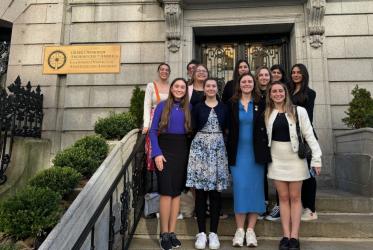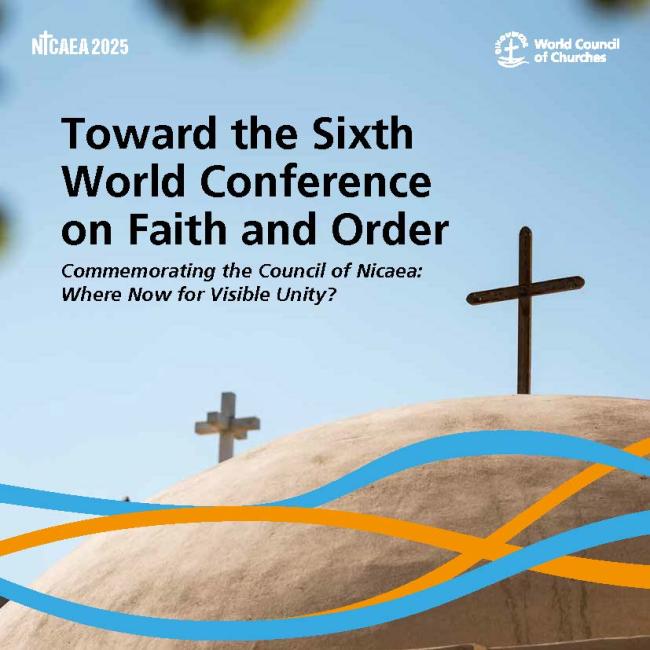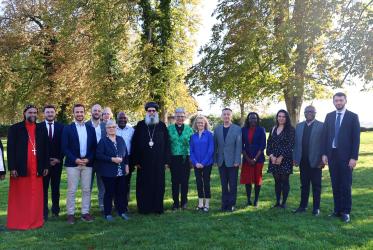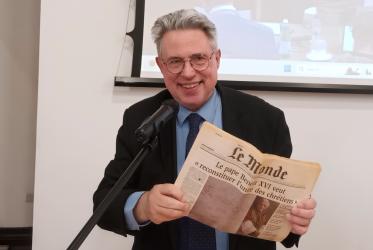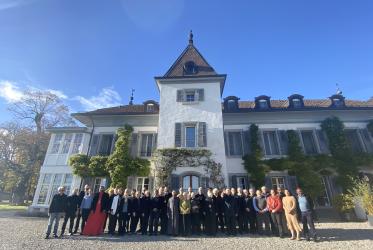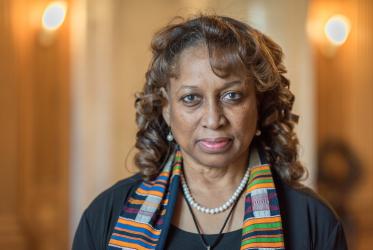Displaying 1 - 20 of 50
Toward the Sixth World Conference on Faith and Order
Commemorating the Council of Nicaea: Where Now for Visible Unity?
24 February 2024
Towards a Global Vision of the Church, Volume II
Explorations on Global Christianity and Ecclesiology, Faith and Order Paper 239
27 November 2023
Thirty days that changed the ecumenical movement
23 October 2023
The Ecumenical Legacy of Pope Benedict XVI
31 December 2022
Towards a Global Vision of the Church Volume I
Explorations on Global Christianity and Ecclesiology, Faith and Order Paper 234
14 November 2022
Rev. Dr Angelique Walker-Smith receives Figel Ecumenism Award
25 February 2022

